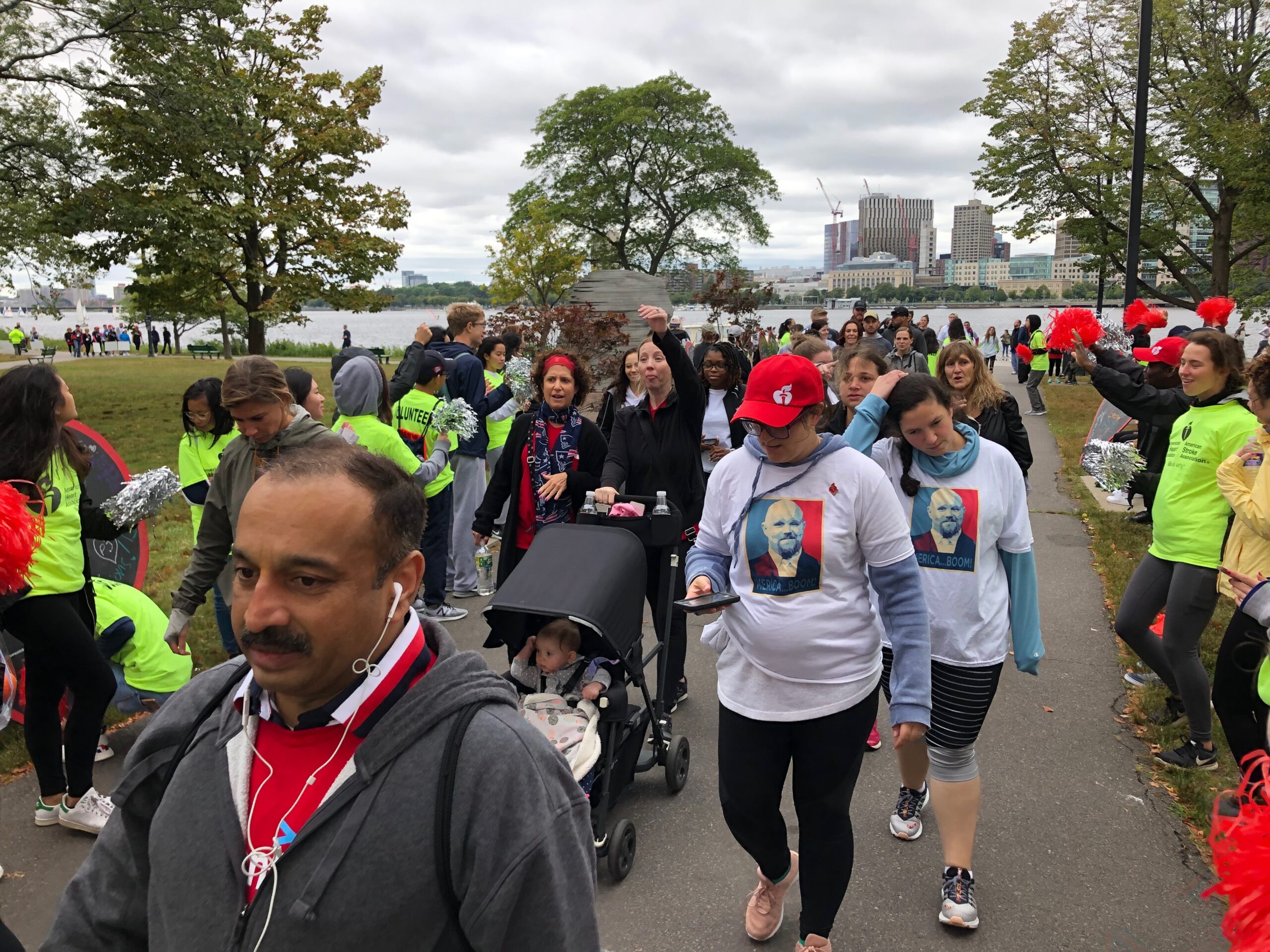BOSTON — Earl Chadwick had been to the Boston Heart Walk before. This year would be different.
Last September, Chadwick was battling heart disease and could barely finish the 3-mile course along the Charles River Esplanade. During the last mile, he had to rest every 50 feet.
Since then, “everything has changed,” said Chadwick, who lives in Nashua, New Hampshire.
In January, he had a heart transplant. This year, Chadwick said he felt strong enough to walk the course twice.
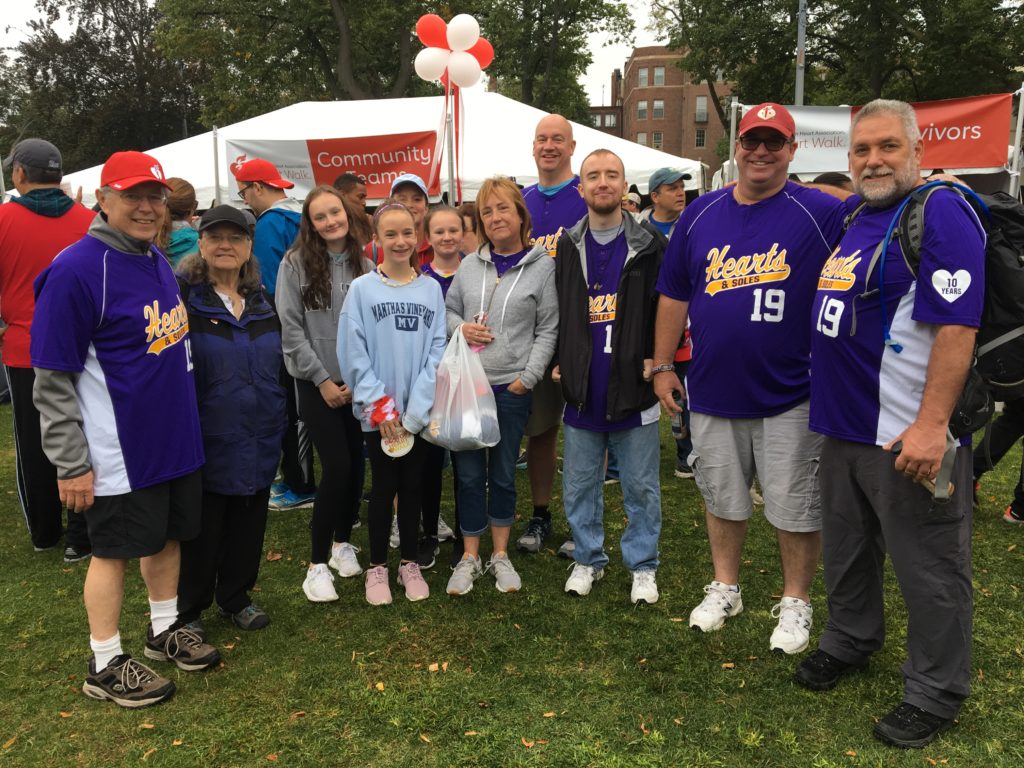
Undeterred by a chilly wind and cloudy skies, Chadwick and thousands of others headed to the Hatch Memorial Shell for the 2019 Boston Heart Walk on Saturday, Sept. 7. The dreary weather did nothing to dampen fundraising efforts – the walk raised more than $1 million to fight heart disease and stroke.
This year’s walk was very meaningful to Chadwick, he said, “knowing it’s going to pay for research that helps keep people like me alive.”
More than 300 teams participated in the walk. Chadwick’s team – Hearts and Soles – was celebrating its tenth year. Some teams were participating for the first time.
Mike Yamanishi, of Pepperell, was walking with a group of Butler University alumni as part of a nationwide Butler community service day. Yamanishi was inspired to start a Heart Walk team after he lost his father to heart disease last December.
Unfortunately, Yamanishi is not alone. Heart disease is the number one cause of death in the United States, and nearly 48 percent of all adults in the country have some form of cardiovascular disease. Approximately every 40 seconds, an American has a heart attack.
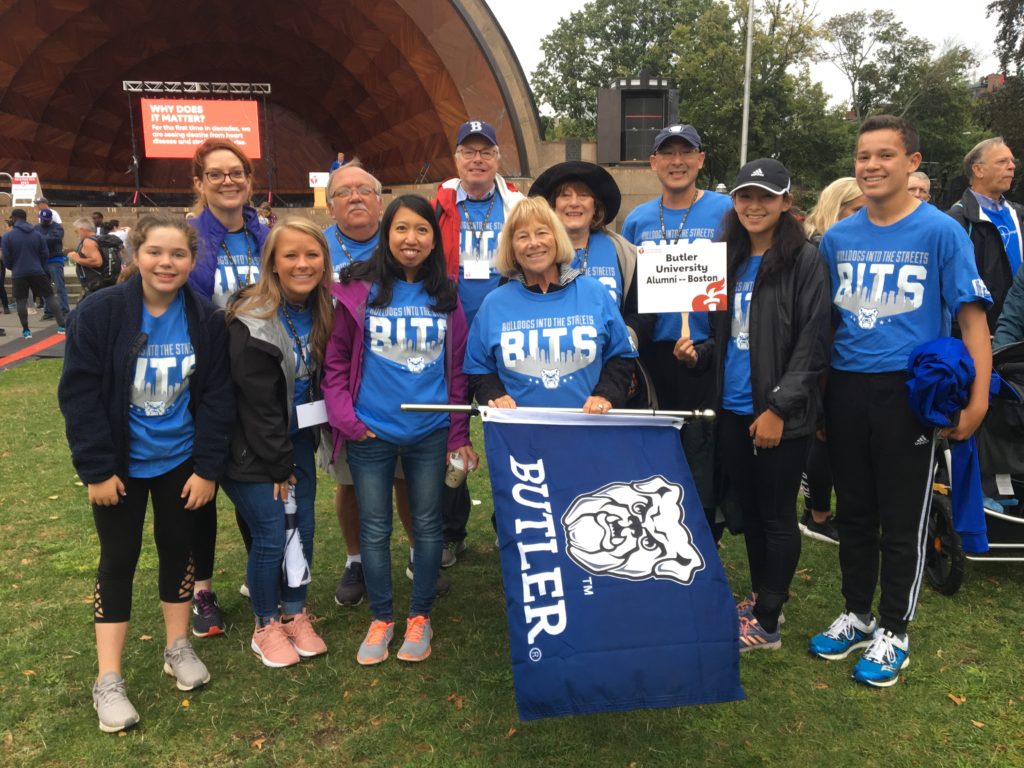
One of those statistics is Doug Alexander, the CEO of Burlington software company Focus Technology Solutions and the chair of this year’s Heart Walk. Alexander is a heart attack survivor, and from the Hatch Shell stage, he told the 7,500 walkers in attendance how his experience led him to get involved with the American Heart Association.
Four years ago, he was lying in bed after emergency triple bypass surgery at Beth Israel Deaconess Medical Center, “watching all these incredible people help me who didn’t even know me,” Alexander said. “I thought, ‘What am I doing to give back?’”
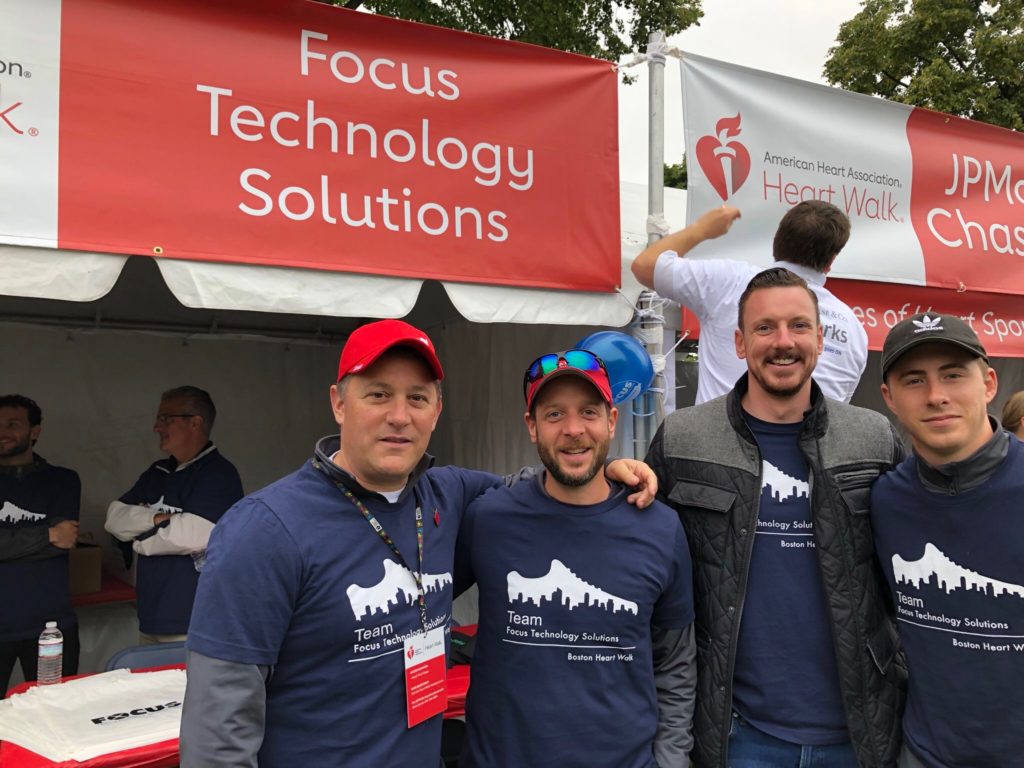
Dr. Robert Gerszten, chief of cardiovascular medicine at the Cardiovascular Institute at Beth Israel Deaconess Medical Center, also spoke at the walk kickoff. He said fundraising for the Boston Heart Walk is a way for the hospital to reaffirm its commitment to cardiovascular research and scientific advancement.
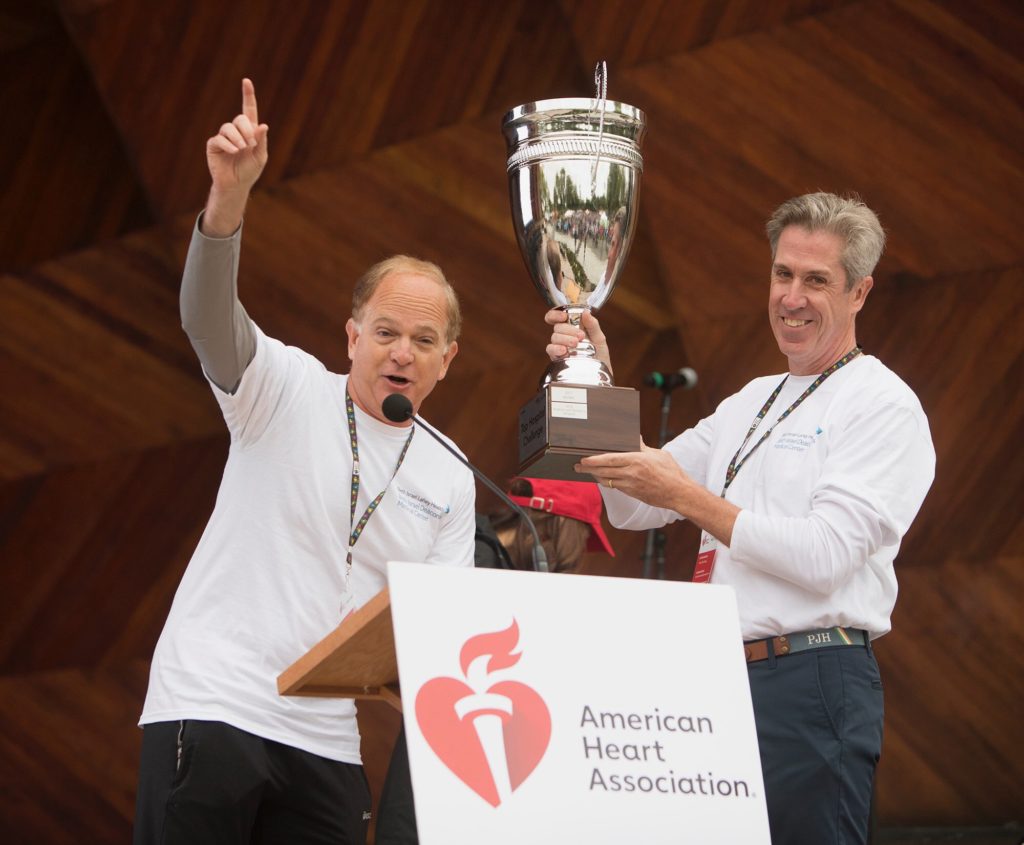
The kickoff programming was emceed WCVB NewsCenter 5 anchor Emily Riemer and included a performance by the High Altitude jump rope team of Upton, and a rendition of the Star-Spangled Banner by a group of students from the Franklin School for the Performing Arts – Devin Curley, Devin DeAngelis, Angelina Willey, Anya Fox and Katie Bird.
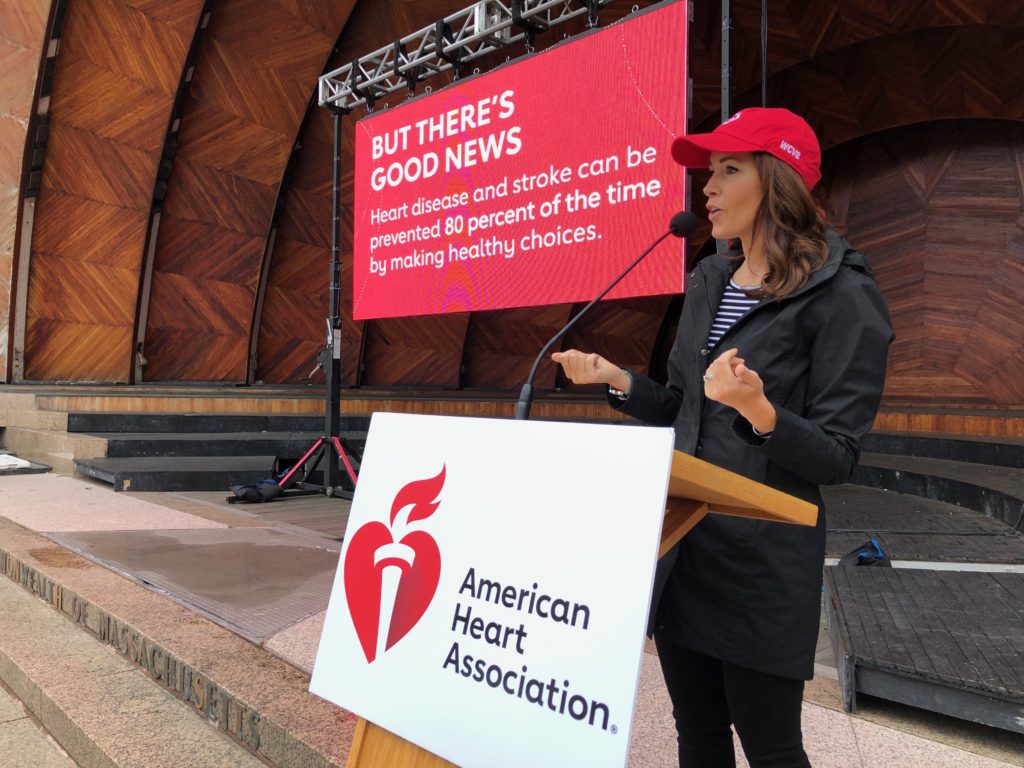
The program concluded with a warmup led by Zumba instructor Tallie Abernathy, of North Andover, who is also a heart disease survivor and last year had aortic valve replacement surgery.
“I’m here to tell people that getting this diagnosis doesn’t mean it’s the end,” Abernathy, the leader of team Brave Hearts, said.
“Last year I drove by the Hatch Shell and thought, ‘If I survive this surgery, I’m going to be on that stage next year,’” she said. “And here I am!”
The Boston Heart Walk is one of more than 300 walks held by the American Heart Association every year to fund breakthrough science and cardiovascular research.
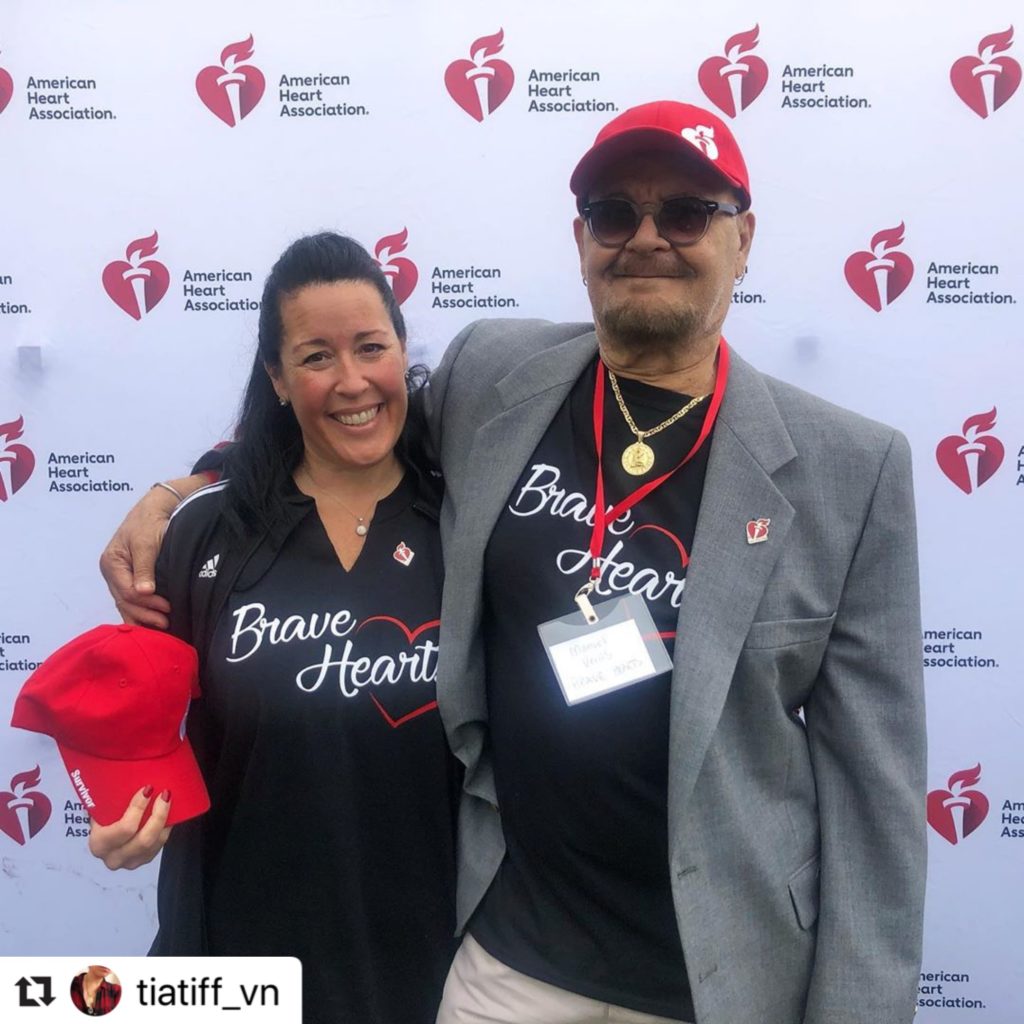
Beneficiaries of this research are people like Boston resident Fresna Dolcius, who was at the walk Saturday with her brother. Dolcius was born with a congenital heart defect called tetralogy of fallot and has had many surgeries since childhood, but she hadn’t heard of the Heart Walk until this year.
“I can’t believe all this,” she said, looking around at the crowded field of fellow walkers. “It’s really inspiring.”
Dolcius said she was walking for others with heart conditions, “to help someone else like me live their life.”
Tracie and Robert Butler, of Woburn, the leaders of Chadwick’s Hearts and Soles team, shared a similar sentiment.
Tracie had a heart attack in 2009, an LVAD implant several years later, and a heart transplant in 2013. Her husband, Robert, started their Heart Walk team with the idea of “paying it forward.”
“Our family has been such a huge beneficiary (of research funded by the American Heart Association),” Robert said. “We want to give other families the same chance.”
